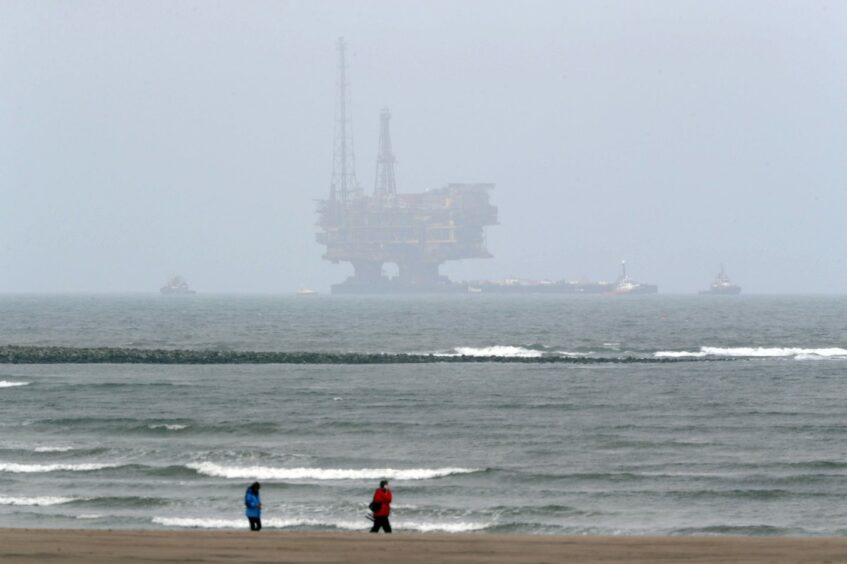
The UK’s oil and gas regulator is set to face a legal hearing over the disclosure of key documents on the decommissioning of Shell’s Brent oil field in the North Sea.
Legal representatives for the North Sea Transition Authority (NSTA) are expected to argue against the publication of five draft documents relating to Brent at a hearing in December.
It comes amid ongoing controversy over the fate of the legs and concrete gravity base structures (CGBS) of the Bravo, Charlie and Delta assets, and their contents, which Shell has argued should be left in place.
The NSTA has said it opposes publication of the files “on a matter of process basis”.
The dispute, reported by the Guardian this week, stems from a freedom of information (FOI) request lodged last year by investigative journalism site Point Source which sought copies of environmental documents on Brent.
When requested, the NSTA said it only held the information on behalf of other parties and should therefore be exempt from disclosure – later leading to an appeal being escalated to the Information Commissioners Office (ICO).
However, the ICO disagreed and also found the organisation had failed to respond to the complainant within the correct timeline and was therefore in breach of regulations.
The appeal case will be heard by the General Regulatory Chamber, which handles appeals regarding decisions made by government regulatory bodies.
According to ICO filings the draft documents date from 2016 and 2017 and cover the Brent decommissioning programme, environmental appraisal and technical documents on gravity base decommissioning, contents and field drill cuttings.
It also notes that the documents have been superseded by more recent versions reflecting further consultations.
An NSTA spokesperson said: “The NSTA notes that the responsibility for the decommissioning decisions and the environmental assessments are not in the NSTA’s remit, but are for the Offshore Petroleum Regulator for Environment and Decommissioning (OPRED).
“The NSTA is appealing the decision of the ICO to disclose certain information on a matter of process basis.”
A separate probe over an FOI request for the same information from OPRED was rebuffed by ICO in June, with the office determining that the interest of disclosure was “outweighed…by the greater public interest in allowing OPRED’s assessment of the decommissioning proposals to continue as effectively as possible”.
Derogation vs dumping
Shell has sought a “derogation” from an OSPAR agreement which would allow it to leave the legs, concrete gravity base structures (CGBS) of Brent Bravo, Charlie and Delta, and their contents in place – an approach which previously had support of OPRED.
The company has argued that the costs and risks of removal would outweigh the benefits.
However, in an apparent change of position, the regulator told OSPAR countries earlier this year that the contents would only be left in place if it was not safe to remove them – and they would “be removed once the technology was available, and in-situ remediation would also be considered”.
It came as other nations reaffirmed that leaving such material would be considered “dumping” under the marine convention, though OPRED maintains its position has not changed.
The proposal to leave the contents has proved highly contentious, leading to Greenpeace protests at the oilfield in 2019 and 2020 over concerns the cells could degrade over years and the contents will spill into the environment.
A Shell spokesperson said: “Decommissioning Brent is a complex, major engineering project, because of its size, age, infrastructure, and the harsh environment of the North Sea. Our recommendations are the result of 10 years of research, involving more than 300 scientific and technical studies.
“We established an independent group of scientific experts to review the findings and ensure all feasible decommissioning options were investigated thoroughly. We submitted our recommendations following extensive stakeholder engagement and only when we were confident that that they were, on balance, the safest, most environmentally sound and technically achievable solution.
“Shell submits documents as part of a process which is tightly controlled by the regulator, in full knowledge that they will be published in due course. The manner and timing of this is a matter for the regulator.”
Recommended for you

 © Greenpeace
© Greenpeace